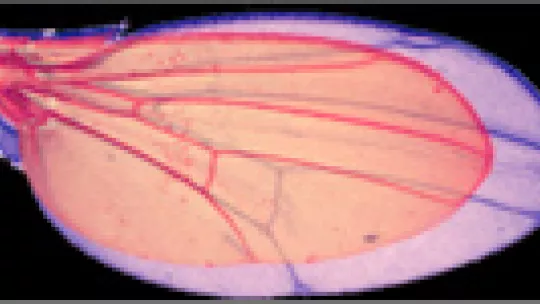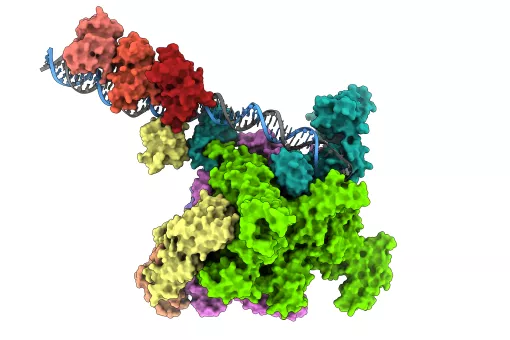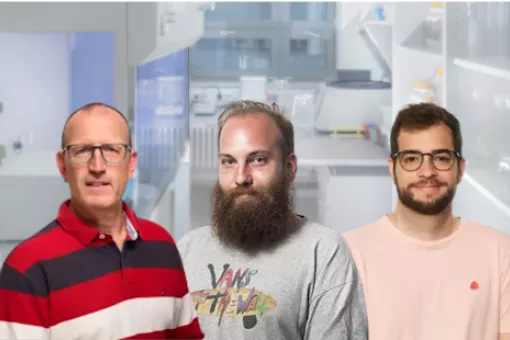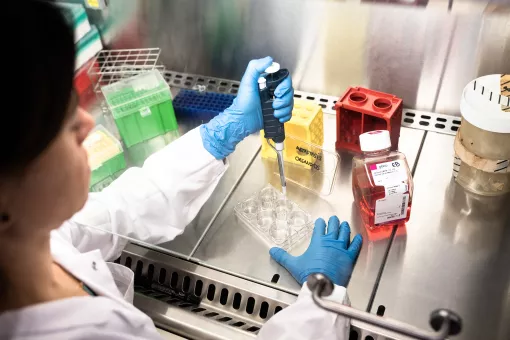Images
The study provides further insight into how cells divide to form the wing during the embryonic development of the fly Drosophila.
Xavier Franch-Marro, scientist at the Institute for Research in Biomedicine (IRB Barcelona), in collaboration with investigators at the National Institute of Medical Research in London, has published a study that provides new data on the processes that regulate growth during the embryonic development of the fly Drosophila melanogaster. The work has been published in the journal Science Signalling.
Cell proliferation and cell fate are crucial processes during the embryonic development of pluricellular organisms. These processes involve morphogens, molecules that distribute through tissues to form concentration gradients and that send signals between cells. Although the first evidence of the implication of these proteins in embryonic development was gathered 100 years ago, their function in these contexts is still not well understood. The authors of this work study the function of the morphogen Wingless in the cell proliferation of the imaginal disc of the Drosophila wing, the larval structure that gives rise to the adult wing.
The role of Wingless in Drosophila wing growth
Wingless is produced in the centre of the imaginal disc of the Drosophila wing and distributes across tissues to form a concentration gradient. Previous studies have shown that the maximum activation of Wingless, that occurs in the centre of this tissue, promotes cellular specialization (a phenomenon known as differentiation) and inactivates cell division or growth. However, the function of low activation of Wingless in the rest of the disc remained unknown. This study reveals that this moderate activation of Wingless has the capacity to activate cell proliferation in most of the wing, thereby allowing its growth during embryonic development.
But what is the relevance of the concentration gradient of the morphogen Wingless for cell proliferation? The researchers demonstrate that this gradient is not required for disc growth since homogeneous amounts of the protein activate proliferation during the development of this structure. Furthermore, the researchers show that only a small number of disc cells are in contact with a concentration gradient of Wingless while most cells are in contact with moderate or low amounts of the protein, thereby allowing proliferation and wing growth. Previous work suggested that a similar mechanism may apply to Dpp, another of the main morphogens that participate in Drosophila development. If this were to be confirmed, it would break the widely accepted belief that these gradients are required for cell proliferation in these structures. Franch-Marro explains that these data contribute to our understanding of the molecular mechanisms through which cells regulate proliferation. Understanding how this signalling pathway works, and bearing in mind that Wingless comprises proteins that are similar to those found in humans, may shed light on some of the human pathologies associated with alterations in cell growth such as cancer.
Reference article
Wingless promotes proliferative growth in a gradient-independent manner.
Baena-Lopez LA, Franch-Marro X, Vincent JP.
Sci Signal (2009). 6 Oct. Doi number: 10.1126/scisignal.2000360
About IRB Barcelona
The Institute for Research in Biomedicine (IRB Barcelona) pursues a society free of disease. To this end, it conducts multidisciplinary research of excellence to cure cancer and other diseases linked to ageing. It establishes technology transfer agreements with the pharmaceutical industry and major hospitals to bring research results closer to society, and organises a range of science outreach activities to engage the public in an open dialogue. IRB Barcelona is an international centre that hosts 400 researchers and more than 30 nationalities. Recognised as a Severo Ochoa Centre of Excellence since 2011, IRB Barcelona is a CERCA centre and member of the Barcelona Institute of Science and Technology (BIST).





